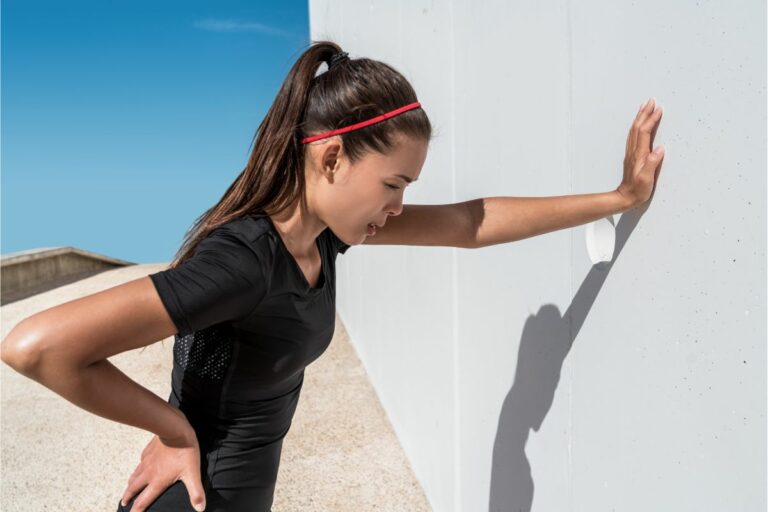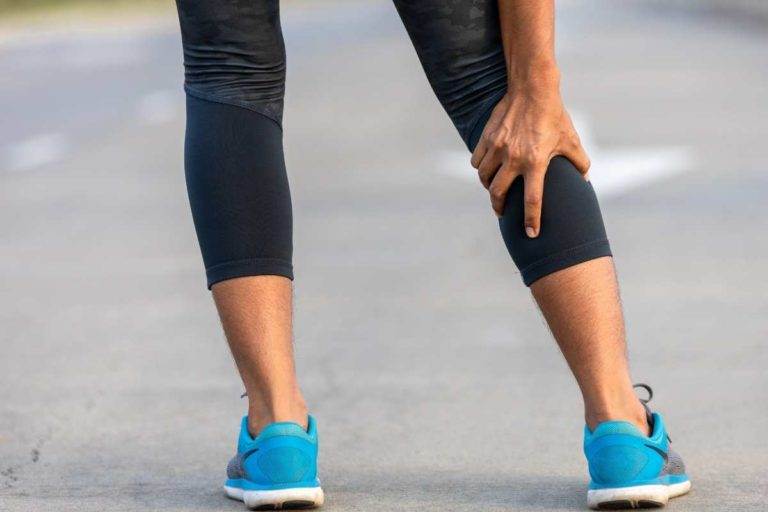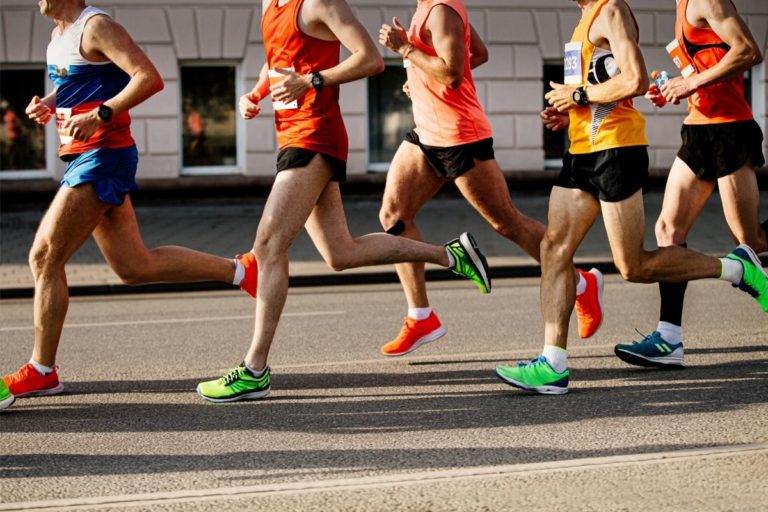Running But Not Losing Weight? Why Running Doesn’t [Always] Burn Fat

Whether we will admit it or not, part of the reason why we all run is to help us lose weight, as well as to stay healthy and lead a longer life.
Running isn’t always the most enjoyable form of activity, but it is certainly EFFECTIVE.
However, If your primary goal is to lose weight, you may find you’re not losing weight as fast as you thought you would.
Or maybe you are GAINING weight instead of losing it.
There is no doubt that running is hard. We want to make running easier and make that hard run worth it. You might be wondering, how to burn more calories when running with the right amount of effort.
Why Does Running Burn So Few Calories?
So you are running but not losing weight, or belly fat? How is it possible?
Why do some runners NOT lose weight?
Here are a few things to look for:
1. Storing Fat For Energy
Getting started with running changes your body. Your body is adapting to the increased demands of exercise.
As a result, your body starts storing energy in fat cells to fuel workouts, and it also starts converting muscle tissue into fat.
While this is normal, if you’re trying to lose weight, you should focus on eating fewer calories alongside exercising more.
So does running on an empty stomach burn more fat? The research is conflicting, but probably not.
2. Water Retention
When you train for a specific event, your body will begin to adapt to that particular environment.
Your body will start to STORE energy and repair muscle fiber damage.
You may also be drinking more water to keep yourself hydrated during your workouts.
The extra water will not affect the results of your workout, but your body may be STORING it, leading to increased weight.
3. Weight Of Muscle vs. Fat
You aren’t going to become an athlete overnight, but you will see improvements in your endurance, speed, and strength.
Over time, your body will start to build muscle while burning fat.
But you may also find that your body will also gain a small amount of weight, but you will still lose inches around your waistline.
This is because muscle weighs more than fat.
4. Longer vs. Faster

So is it better to push yourself harder during your workout, or is it better to do more extended activities at a lower intensity?
When you compare running to jogging, you can see that running burns more calories. So in this case, the more intense exercise burns more.
It is usually more effective to exercise at a high-intensity level than to exercise longer at a low intensity.
Increasing the intensity of your workouts burns more calories.
There are many types of running workouts like intervals, tempo runs, and fartlek runs that INCREASE the intensity of training.
Researchers have compared short but intense exercises to long, less-intensive cardio.
A study from the National Library of Medicine found that people who exercised for 30 to 60 minutes at a lower intensity burned more than twice as much body fat as those who performed four to six 30-second sprints.
Fat mass decreased 12.4% with sprint interval training and 5.8% with endurance training.
So sprinting in intervals seems to be the best type of running to lose weight and burn more calories.
But for long-term success, it’s essential to vary your workout routine.
Combine steady-pace training (see how many calories a 5K run burns) and sprint runs to avoid plateaus and reduce your risk of injury. Exercise regularly and consistently is the best method for a healthy life.
5. Forget The Calories
Calorie tracking apps are great for keeping an eye on your progress, but they aren’t always helpful.
Many of them don’t ACCURATELY measure the calories burned during exercise. They don’t account for the fact that we burn different amounts of energy depending on our activity level.
That means if you’re running at a fast pace, you might burn fewer calories than someone who runs at a slow pace.
If you’re trying to lose weight, then knowing exactly how many calories you’ve burned may not be important. What matters is whether you’re losing fat or gaining muscle mass.
You burn almost no calories if you’re sitting around all day, watching TV, playing video games, or doing nothing productive.
However, if you’re active throughout the day, moving around, walking, jogging, riding your bike, etc., you’ll likely burn more calories.
For example, an hour of moderate-intensity cardio burns about 200 calories.
So, if you spend two hours per week working out, you’ll burn approximately 400 extra calories each week.
That means you’ll lose weight!
Muscle tissue requires energy to maintain itself. When you build muscle mass, you increase the amount of energy your body uses at rest.
When you run, lift weights, or engage in other forms of physical activity, you create new muscle cells.
These new muscle cells require energy to grow and mature. As a result, you will burn more calories while exercising than you did before.
6. Don’t Overdo It
It might seem like a crazy idea, but if the number on the scale doesn’t change, it may be because you’re exercising too much.
For most people trying to lose weight, exercise is essential for their health and well-being.
However, when we exercise too much, our bodies release too much cortisol, which impacts our hormones and causes us to retain water.
We then become dehydrated, causing our metabolism to slow down. As a result, we gain weight.
If you’re looking to shed those last stubborn pounds, try reducing your exercise volume.
High levels of cortisol also cause your muscles to break down faster, causing them to waste away. This leads to an increased risk of injury and illness.
The Bottom Line
If you are running but not losing weight, it can be frustrating. It can seem like running isn’t contributing to your weight loss goals.
But sprinting is a super healthy practice. Rest assured building muscle is a great thing to do for your body.
Remember muscle weighs more than fat. Don’t rely on the scales for a true reflection of what’s changing in your body.
With the right mindset, running can become an essential element in your life for gaining optimal health.






